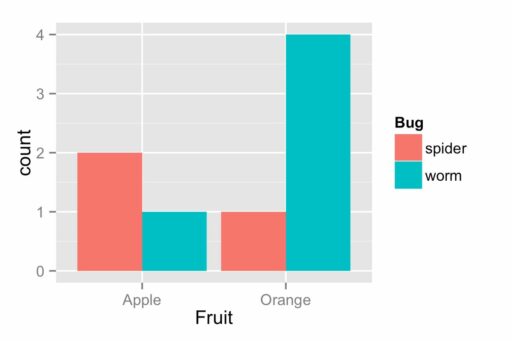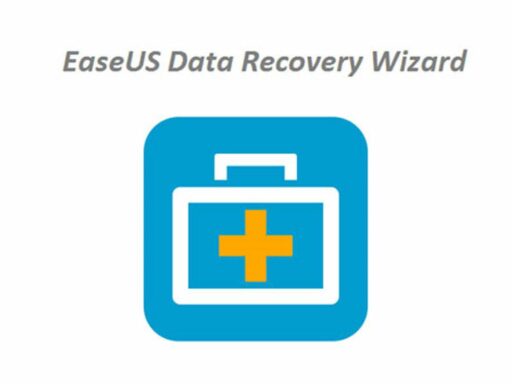Table of Contents
Data entry clerks play a crucial role in the digital economy, where their ability to accurately and efficiently input information into computer systems is highly valued. The shift towards remote work has opened up new opportunities for data entry clerks to perform their duties from the comfort of their homes. However, to excel in a remote data entry role, certain skills are indispensable. This article explores the 6 essential skills every data entry clerk needs to master for remote work.
Key Takeaways
- Computer proficiency is a non-negotiable skill for remote data entry clerks, including familiarity with programs like Microsoft Excel and Word.
- A high typing speed coupled with accuracy is critical to manage the volume of work and meet deadlines in data entry tasks.
- Attention to detail is paramount to ensure the integrity of data and to minimize errors in data entry processes.
- Effective time management skills are necessary to prioritize tasks, meet deadlines, and maintain productivity while working from home.
- Strong communication skills are essential for remote data entry clerks to facilitate clear and timely interactions with employers and team members.
1. Computer Proficiency

In the realm of remote data entry, computer proficiency is a fundamental requirement. This encompasses a broad range of skills, from understanding different types of data to navigating various software platforms. A data entry clerk must be adept with the tools of the trade, which typically include word processing, spreadsheet, and database software.
For those exploring opportunities in remote data entry, it’s crucial to have a solid grasp of Microsoft Office products and, if possible, familiarity with SAP systems. The ability to set up and manage electronic filing systems is also essential, ensuring that all documents are maintained with a high degree of accuracy.
A data entry clerk’s role is not just about inputting information; it’s about managing that information effectively and efficiently.
Here’s a snapshot of the core computer skills required:
- Proficient typing and transcription
- Advanced knowledge of MS Office and database software
- Proficient in cloud services (Dropbox, Google Drive)
- Ability to create, maintain, and enter information into databases
- Experience with computer operations and technical skills
These skills are not only vital for performing the job but also for maintaining the integrity and confidentiality of the data handled.
2. Typing Speed and Accuracy

In the realm of remote data entry, typing speed and accuracy are paramount. Employers often measure typing proficiency in keystrokes per hour (KPH) or words per minute (WPM), and having high numbers in these metrics can significantly bolster your resume. For instance, a good alpha-numeric KPH is around 7,000-8,000, while a 10-Key KPH of 10,000-12,000 is impressive. Straight typing speeds of 60-70 WPM are considered fast, and anything above that is exceptional.
It’s not just about how fast you can type, but also how accurately. Striving for zero errors is crucial as it reflects your attention to detail and your ability to produce quality work.
Here’s a quick reference for expected typing speeds in different data entry tasks:
| Task Type | Good Speed | Exceptional Speed |
|---|---|---|
| Alpha Numeric | 7,000-8,000 KPH | >9,000 KPH |
| 10 Key | 10,000-12,000 KPH | >15,000 KPH |
| Traditional Typing | 60-70 WPM | >80 WPM |
Remember, these figures are not just numbers to list on your resume; they represent a skill that can be honed and improved with practice. Utilize online tools and typing tests to track your progress and set goals for improvement. Showcasing your typing test results, for example on your LinkedIn profile, can serve as a quasi-certification of your abilities.
3. Attention to Detail

In the realm of remote data entry work, attention to detail is not just a desirable attribute; it’s a non-negotiable requirement. The ability to spot errors, inconsistencies, and omissions is what separates a proficient data entry clerk from the rest. A single mistake can lead to significant inaccuracies that could affect business decisions and outcomes.
Attention to detail is the cornerstone of data entry accuracy. It involves a meticulous approach to handling information, ensuring that every piece of data is correctly captured and recorded.
To maintain a high level of detail orientation, consider the following practices:
- Regularly review and audit your work to maintain at least a 98% accuracy rate.
- Develop a systematic approach to data entry tasks to minimize errors.
- Stay organized and prioritize tasks to manage your workload effectively.
Remember, being detail-oriented also means handling data entry items and duties with care, respecting data confidentiality, and contributing to the overall success of your team.
4. Time Management

Effective time management is crucial for a data entry clerk working remotely. Being able to prioritize tasks and adhere to deadlines ensures that projects are completed efficiently and on schedule. This skill is particularly important when handling large volumes of data that require both speed and precision.
- Plan daily tasks using a schedule or to-do list
- Allocate specific time slots for uninterrupted data entry
- Regularly review and adjust plans to improve productivity
Time management not only helps in meeting deadlines but also reduces stress, allowing for a more balanced work-life approach. It’s about working smarter, not harder, to maximize the value of time spent on each task.
Understanding the importance of time management can be seen in the required accuracy levels for data entry tasks. Maintaining a high level of accuracy, often at 98% or above, is non-negotiable and directly tied to the ability to manage time effectively. This ensures that the turnaround timelines are consistently met without compromising the quality of work.
5. Communication Skills

While data entry may seem like an independent task, effective communication is a cornerstone for remote data entry clerks. Not only does it involve clear and concise written communication, but also the ability to listen and interpret instructions accurately.
- Interpersonal skills and people skills
- A positive attitude under pressure
- Proficiency in language
- Other essential soft skills
These skills ensure that data entry clerks can work harmoniously with teams, understand and meet client expectations, and handle feedback constructively. In the context of remote work, communication becomes even more critical as it bridges the physical gap between team members.
Adaptability to remote work environments and the ability to maintain clear communication channels are non-negotiable for a successful data entry clerk.
Remember, a data entry clerk is often the first line of defense against errors. Therefore, maintaining open lines of communication with supervisors and team members is vital for catching and correcting mistakes before they become costly.
6. Adaptability
In the ever-evolving landscape of remote work, adaptability is a crucial skill for data entry clerks. The ability to adjust to new technologies, workflows, and changing job requirements is what sets apart proficient data entry specialists. As highlighted in a recent article, adaptability is a top soft skill that ensures precise data handling and customer satisfaction.
Adaptability also means being flexible when it comes to workloads and requirements. A data entry clerk might need to switch between tasks with ease and handle unexpected changes without a drop in productivity. This flexibility is not just about shifting tasks; it’s about maintaining a positive attitude and approach to new challenges.
The best data entry clerks are those who can quickly learn new software or systems and integrate them into their daily routine without supervision. They are self-directed and thrive in environments that require a high degree of autonomy.
Lastly, adaptability in data entry extends to personalization and performance. Clerks must be able to tailor their approach to the specific needs of the task or project, ensuring that their output meets the highest standards of quality and accuracy.
Conclusion
As we’ve explored the essential skills for data entry clerks in the remote work landscape, it’s clear that success hinges on a combination of technical proficiency, attention to detail, and strong organizational abilities. Remote data entry jobs offer the flexibility and potential for competitive pay that many seek in today’s job market. By honing skills such as fast and accurate typing, familiarity with relevant software, and effective communication, data entry clerks can not only perform their roles efficiently but also open doors to career advancement. Whether you’re just starting out or looking to improve your remote work setup, embracing these skills will position you well in the evolving world of data entry.
Frequently Asked Questions
What basic computer skills are necessary for a remote data entry clerk?
A remote data entry clerk should have proficiency in Microsoft Office programs like Excel and Word, and the ability to navigate computer systems and databases efficiently.
Is a fast typing speed crucial for data entry jobs?
Yes, a fast typing speed coupled with high accuracy is essential for productivity and efficiency in data entry roles.
How can attention to detail be maintained when working remotely?
Maintaining attention to detail can be achieved by creating a distraction-free workspace, regularly reviewing work, and using tools to help track and organize tasks.
What time management strategies are effective for remote data entry clerks?
Effective strategies include setting clear goals, prioritizing tasks, using time-tracking software, and taking regular breaks to avoid burnout.
How important are communication skills for remote data entry clerks?
Communication skills are crucial for remote data entry clerks to ensure clear understanding of tasks, report progress, and resolve any issues promptly with employers or team members.
Can I still pursue a career as a data entry clerk with limited computer skills?
While basic computer skills are required, some employers may provide training. A willingness to learn and adapt to new technologies is important for those with limited skills.





